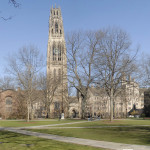On September 13th, 2015, fourteen-year-old Ahmed Mohamed from Irving, Texas effortlessly constructed a digital clock in the span of twenty minutes. For a young NASA fanboy whose passion is to engineer and innovate, this was just another Sunday night. Before going to bed, he placed it in his book bag, eager to share his latest creation with his teachers. The next day, Ahmed showed the clock to a teacher who praised his good work, but also asked him not to show it to anyone else in the school.
When the clock’s alarm went off in an English class later that day, Ahmed’s teacher accused him of making and bringing a bomb to school. After being brought to a room within MacArthur High School, he was interrogated by five police officers, then subsequently taken to a juvenile detention center in handcuffs. There, having been denied a phone call to his parents, Ahmed was further questioned and later fingerprinted. As pictures of Ahmed handcuffed circulated the internet, there has been an outpour of public support from people around the world who claim to #standwithAhmed.
Giants like NASA, MIT and Google have offered Ahmed an abundance of internships, scholarships and other attractive opportunities, including an invitation to attend the Google Science Fair, a scholarship to attend Space Camp USA and a personal request from Mark Zuckerberg to visit Facebook headquarters.
While generous, these offers and invitations have increasingly become the center of attention which skews our understanding of Ahmed’s experience as a simple suppression of creativity. There is no doubt that Ahmed is gifted, but what was questioned were his motives. Instead of receiving support from his teachers–figures of authority whose job it is to nurture and protect young minds–Ahmed was villainized simply because his English teacher doubted his intentions. Failing to disassociate stereotypes from reality, she identified him as harmful. The perception of Ahmed as a threat is magnified by the mingling of his identities as a child of immigrant parents, as a Muslim, and as a Black youth in America.
We are not trying to diminish the support Ahmed has received, however, these generous offers must not eclipse the experience of being in a perpetual state of otherness. We cannot allow them to veil the heavy burdens minorities must carry in an attempt to survive in an oppressive and discriminatory system. A system that is reinforced by institutions, run by figures of authority and influenced by rhetoric that conditions us to perceive people in categorical ways. A young Black male must be a trouble maker. A Muslim must be scheming. The child of immigrant parents must be separate from his peers.
Politicians have commented on this incident in a manner that further distorts the event’s inherent issues, and fails to hold accountable members of the school administration, law enforcement, or the general conditions in which this injustice was allowed to occur . An opportunity now exists for politicians to initiate a conversation regarding the broken justice system and racialized society we live in. Instead of misdirecting the discourse towards who we allow to succeed, they can and must discuss whose humanity is valued in America.
In a tweet addressed to Ahmed, Hillary Clinton rightly points out that it is fear and assumptions that led to his arrest. Yet, under what conditions will Ahmed and his peers be allowed to remain curious, to move forward, to explore their options when their environments remain static? How are we changing, or rather, how should we change our current society in order to facilitate a safe and accepting atmosphere that we claim America has?
Obama was also quick to overlook the implications of Ahmed’s detention, claiming that it is “kids like Ahmed” that demonstrate what it truly means to be “American.” However, just as much as Ahmed’s sense of innovation is part of America’s spirit, so is the history and legacy of racism, anti-blackness, Islamophobia, surveillance, and dehumanization of minorities. The nation takes ownership over the creativity and accomplishments of its citizens, but refuses to acknowledge its discriminatory practices.
It is important to #standwithAhmed, as all of the tweets and shared Facebook posts provide solidarity and support for Ahmed and his family, as well as highlight the gravity of his experience. But the frustration expressed towards the English teacher and police officers involved should be redirected towards what they represent. Moving forward entails having proactive conversations that link small incidents to larger issues in a nod towards the manifestations of racism. Whether you are President Obama or a first year in Pierson, you can engage with Ahmed’s story more fully by considering just how deeply racism and Islamophobia permeate daily experiences. This is vital because this is not the end.
Discrimination will continue to happen, but not everyone can have a hashtag and not everyone will gain national attention. We ought to use Ahmed’s unfortunate experience to understand these occurrences on a broader scale. Treating prejudice as isolated to specific regions in America fails to address the complexities of racism and Islamophobia. The real danger lies in allowing historical amnesia to take place, thereby decontextualizing events from social and political realities.
Letting go of this tunnel vision requires self education, effort, and a comprehension of history. Understanding the systems that lead to dehumanization of others requires time, it requires knowing that even if you don’t have the answers now, you are willing to look for them.
Systemic discrimination manifests itself throughout people of color’s lives and serves to make them feel less human. It begins the moment we are coded as different. Ahmed’s experience of being classified began long before his arrest–in an interview he reflects on middle school memories of being called “bombmaker” and “terrorist.” The evolution of bigotry from taunting name calling to a law enforced reality often occurs because prejudice is an ubiquitous presence in people’s lives.
Those committed to social justice must be conscientious of this trajectory. We should be present and intervene during incidents of discrimination that occur at a smaller scale. While these instances can easily be brushed off as off-hand jokes or harmless missteps, they accumulate to demean, alienate and ultimately dehumanize people on the receiving end.
Like the president, we want to live in an America that is great–one that is pushed forward by innovation and truly welcomes diversity. But we will not be able to do so until we as a nation acknowledge how deeply implicated we all are in making Muslims, Blacks, Immigrants and other minorities feel inferior.
by Ishrat Mannan and Daad Sharfi





